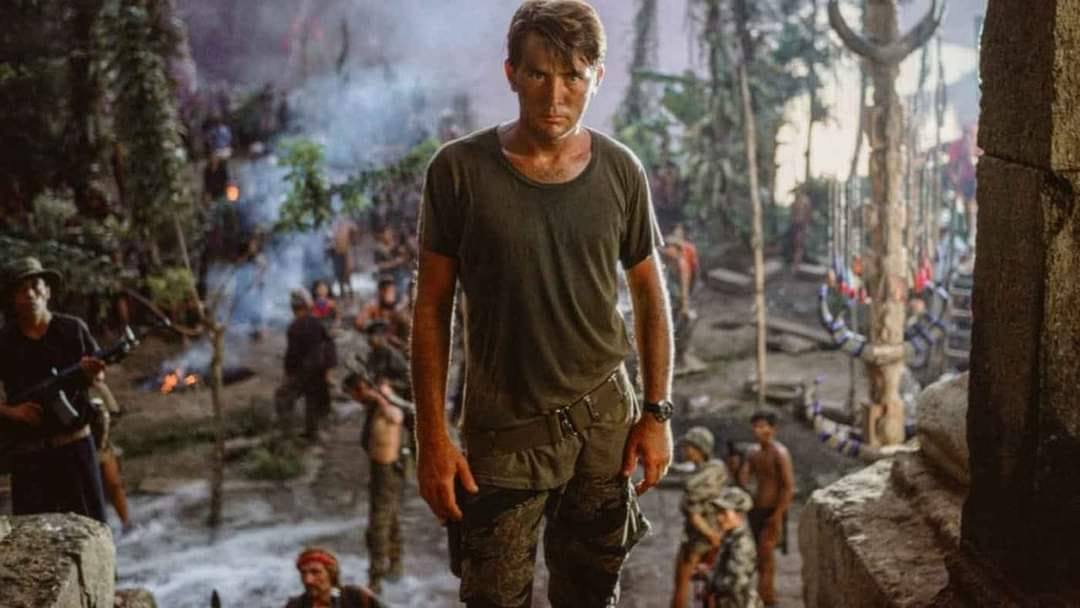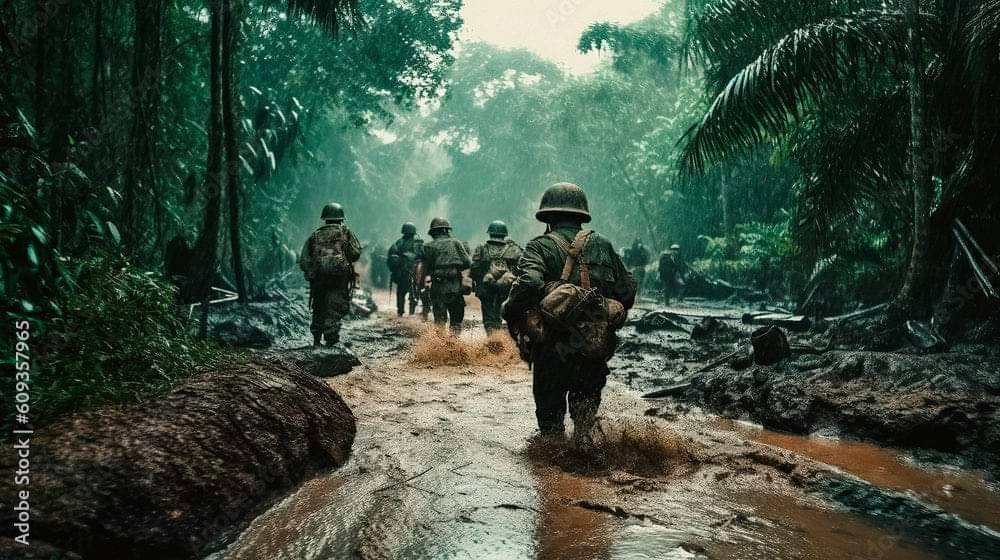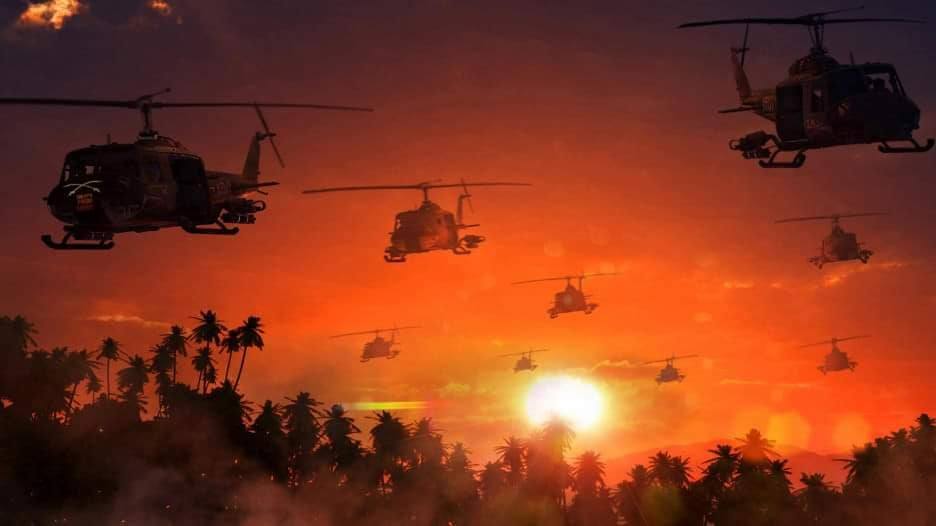Apocalypse Now

Trailer:
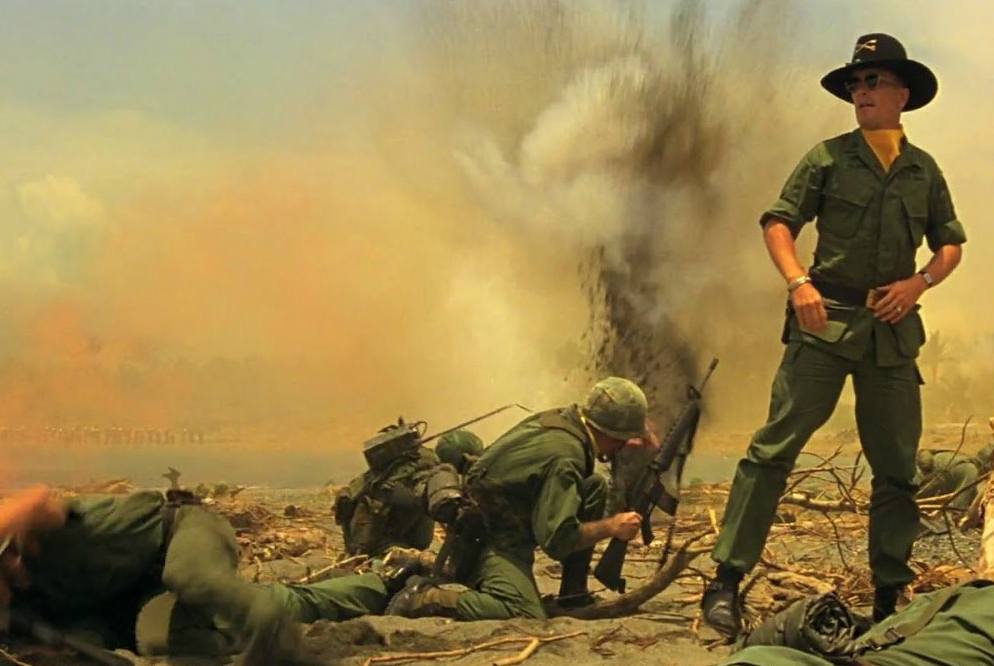
Themes and Symbolism
“Apocalypse Now” delves deep into themes of insanity, power, and the duality of human nature. Colonel Kurtz embodies the darkness within humanity, having embraced the primal instincts that war often unearths. His kingdom, built on fear and idolization, represents the ultimate breakdown of order and civilization. Willard’s journey to confront Kurtz is as much an external mission as it is an internal struggle with his own understanding of morality and purpose.
The film also critiques the absurdity and futility of war. The surreal experiences and bizarre characters Willard encounters underscore the madness that war inflicts on individuals and societies. Coppola’s use of dreamlike sequences and fragmented narrative structure further enhances the sense of disorientation and existential dread.
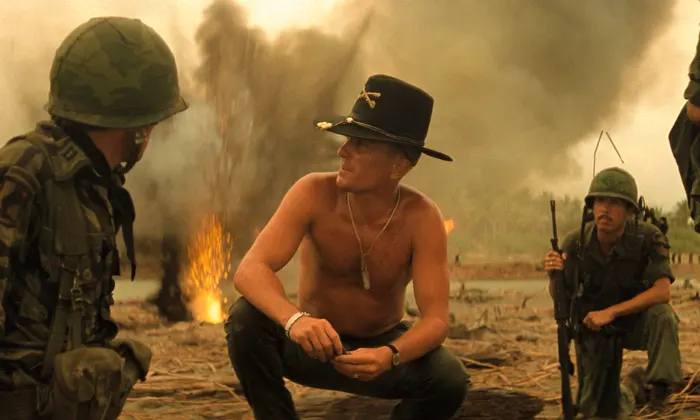
Visuals and Cinematography
Cinematographer Vittorio Storaro’s work on “Apocalypse Now” is nothing short of legendary. The film’s visuals are striking, with lush, oppressive jungle settings juxtaposed against the fiery destruction of war. The use of light and shadow, particularly in scenes involving Kurtz, creates an atmosphere of mystery and menace. The iconic shot of Kilgore’s helicopters flying against a backdrop of rising sun and Wagner’s music epitomizes the film’s grandiose yet haunting style.
The river journey serves as a visual metaphor for Willard’s descent into the heart of darkness, with each bend revealing new layers of horror and madness. The climactic encounter with Kurtz is bathed in deep shadows, reflecting the profound moral ambiguity and the dark recesses of the human mind.
Performances
Martin Sheen delivers a powerful performance as Captain Willard, capturing his character’s internal conflict and gradual unraveling. Marlon Brando, despite his limited screen time, leaves an indelible mark as Colonel Kurtz. His portrayal of the enigmatic and philosophical Kurtz, who oscillates between moments of lucidity and madness, is mesmerizing and deeply unsettling.
Robert Duvall’s portrayal of Kilgore provides one of the film’s most memorable moments, balancing insanity with an almost comical bravado. His infamous line, “I love the smell of napalm in the morning,” has become iconic, encapsulating the surreal and
